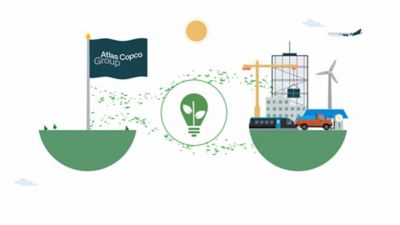Episode 14 - Unlocking talent by identifying and maximizing potential
Performance development often focuses on refining existing skills and competencies. In contrast, potential development is about creating an environment that encourages learning, experimentation, and the acquisition of new skills. It's a more proactive and forward-thinking approach that aligns with the dynamic nature of the modern workplace.
A summary of what’s included
In the latest episode of Atlas Copco Group People Podcast, Cecilia Sandberg, SVP Chief Human Resources Officer and Dorna Eriksson Shafiei, Vice President Talent & Learning deep dive into the topic of potential. How do you define it? What makes it different from performance? Is it something we can develop and grow?
“The current talent landscape and even more so the future one, requires us to hire for potential and train for skills, which means we need to be clear on the difference between potential and performance,” says Dorna.
Potential refers to an individual's inherent or latent capacity for growth and development. It includes the untapped abilities and skills that individuals possess but may not have fully realized yet. Performance on the other hand relates to the actual results or achievements of an individual in their current role. It reflects how well an individual has executed tasks, met goals, and delivered on expectations.
“Research has consistently shown that focusing solely on current performance can lead to missed opportunities. By understanding and nurturing future potential, organizations can adapt to changing demands, foster innovation, and stay ahead in a rapidly evolving business landscape,“ reflects Cecilia.
“We need to remember that developing potential is a long-term investment. It acknowledges that individuals may not currently possess all the skills needed for expanded responsibilities, but can acquire them through sustained effort, a learning mindset, and critical experiences over time,” says Dorna.
Tune in and learn how developing performance and developing potential require distinct approaches due to their different orientations and goals!




